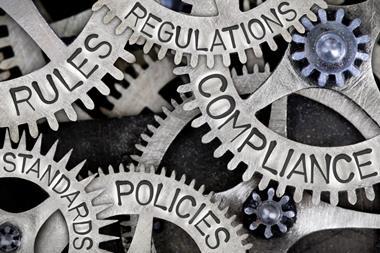Aon report highlights the growing importance of product recall insurance...
Aon’s soon-to-be released report entitled ‘Vine to Wine’ underscores the growing importance for businesses to take up product recall insurance.
The report warned the UK’s wine industry of a surge in adverse publicity and the risk of sales not recovering should a contaminated bottle of wine hit the shelves.
“A product recall, as a result of accidental or malicious incident, could ruin a vineyard’s reputation and customer base. It could take a long time to win this business back,” says David Palmer, director of Aon’s crisis management team.
Aon’s first Global Risk Management Survey, released last month, found that more than half of executives see damage to reputation as the number one concern to business.
The survey also reported recalls or safety notices from the UK in 2006 more than doubled from the previous year. Anyone producing an unsafe product could face prosecution and a possible prison sentence of up to two years under the General Product Safety Directive.
Understanding what problems can occur is the first step to preventing a recall. The biggest risks to wine include:
• contamination – e.g. if grapes have been sprayed with a pesticide or if a foreign body, such as a chemical or glass shards, finds its way into the wine;
“A product recall, as a result of accidental or malicious incident, could ruin a vineyard’s reputation and customer base
David Palmer, director of Aon’s crisis management team
• design faults – in March 2007, a European drinks company recalled a batch of its Chenin Blanc Chardonnay Semillon because of a fault in the bottle that could cause the bottle neck to break when the cork was pulled out;
• labeling – an incorrectly labeled bottle, or one that fails to mention constituents such as allergens, is considered a dangerous product.
Risk management can significantly reduce the potential for problems. "Producers must use quality control procedures to prevent producing an unsafe product. This involves testing right throughout the production process, from checks on the raw ingredients to reviewing the labels on the final products.
“Contamination and recall insurance can provide a financial safety net. Insurance can cover you for the destocking and lost revenues of the recalled product,” said Palmer.
While financial compensation can make the difference between a business surviving and going under, the response facility on recall insurance helps to minimise the impact on reputation.
Palmer added: "Reputational risk can be worth much more than the lost product and managing this should be a crucial part of vineyards' crisis management plans. Companies need to update their view of PR from focusing on pure promotion to having the ability to protect your reputation and in turn the health of your business."
















